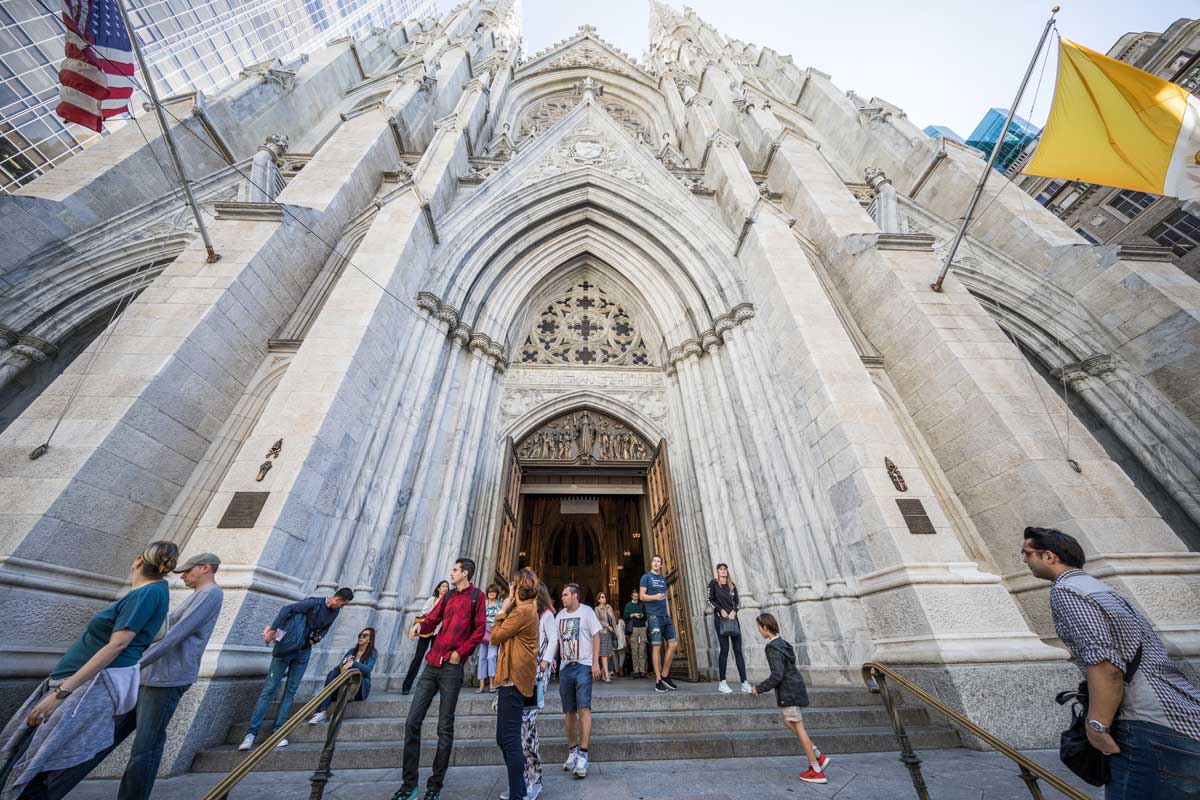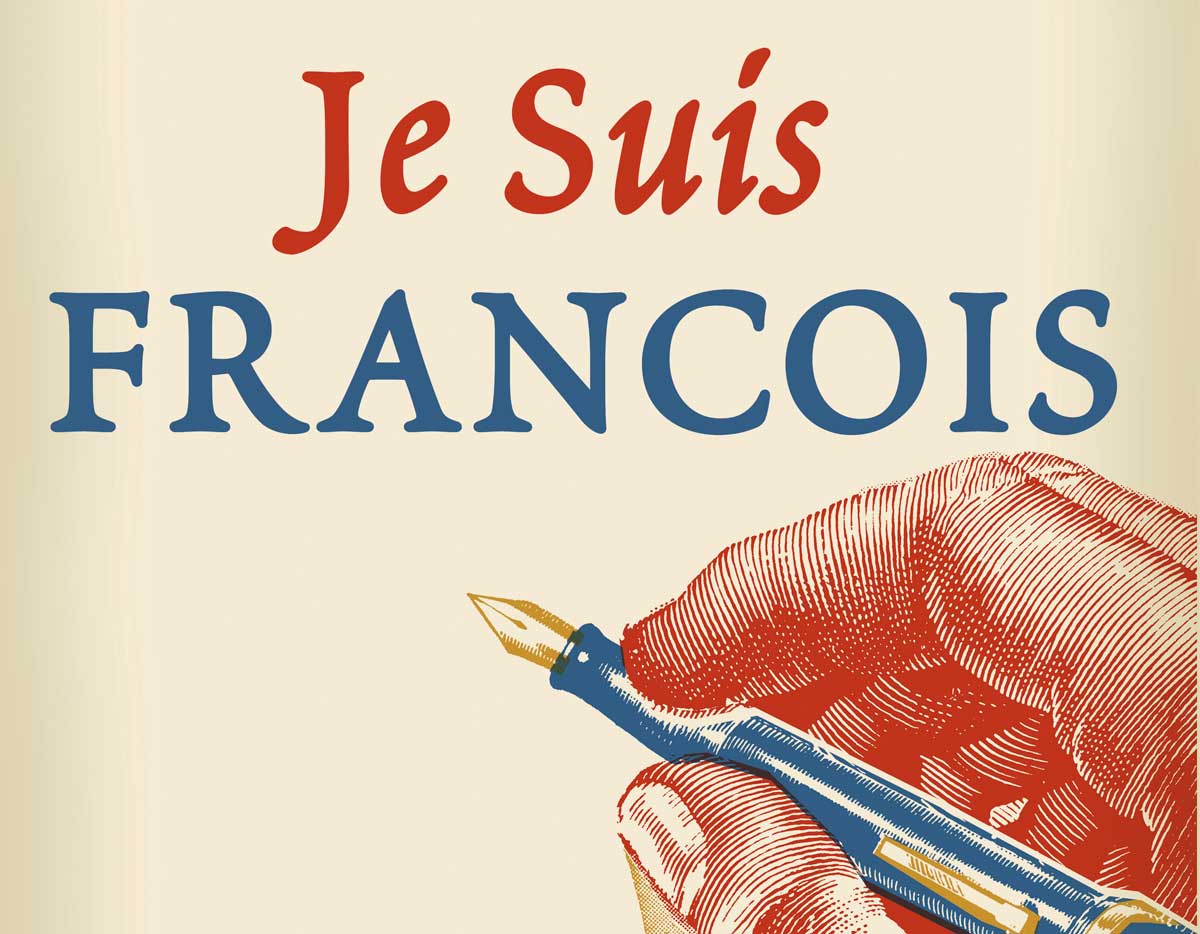A Faith Worth Disbelieving
Uncertainty About Doctrinal Truth Leads to Secularized Substitutes that Are Not Worth Believing
by Jerry L. Walls
In one of its “Religion” articles in 1980, Time magazine observed the surprising phenomenon that God was making a comeback “in the crisp, intellectual circles of academic philosophers, where the consensus had long banished the Almighty from fruitful discourse.” In the intervening years we have witnessed a remarkable new stream of fruitful discourse about God flowing from philosophical pens.
Not only has the existence of God been defended, but philosophers also have busied themselves with more specific claims as well. For instance, fresh accounts of the coherence of traditional divine attributes such as omnipotence have been formulated. More recently, a number of philosophers have turned their attention to distinctively Christian concerns such as the Trinity, the Incarnation, atonement, hell, and the interpretation of Scripture. And all of this work has been done in the “crisp, intellectual” fashion for which philosophers are noted.
A Faith for the Mind & Heart
In the past couple of years another fascinating variety of literature has come from these same pens, and has been published in two volumes entitled, respectively, God and the Philosophers and Philosophers Who Believe. In these volumes, Christian philosophers (as well as two Jewish philosophers) depart from their typically analytic style of discourse, and speak “from the heart” about their own encounters with the Almighty and how this has affected them.
While no less serious than their academic works, these essays allow the authors to engage their readers at a personal and existential level that is absent from much philosophical writing. They are a powerful demonstration that academics are not just intellects; they are persons, and their faith engages their humanity at all levels of their being, just as it does in the case of “ordinary” believers. One of the recurring themes of these essays is that the faith which these philosophers have found is intellectually as well as emotionally satisfying.
The Appeal of Watered-Down Religion
Most of them are broadly orthodox in their beliefs and several specifically comment on the lack of appeal that watered-down religion has for them. Consider a few examples.
Peter van Inwagen on his reaction to reading C. S. Lewis: “I lost at the time, and for good, any capacity for taking any liberalized or secularized version of Christianity seriously. I could read Lewis. I could try to read Harvey Cox or William Hamilton. I could see the difference. To this day, I cannot see why anyone disagrees with my judgment that academic theologians of their stripe have nothing of interest to say.”
Marilyn McCord Adams on the religious climate of her university days as affected by the likes of Tillich, Bultmann, Buber, and Niebuhr: “If these authors offered a way of being religious—even Christian—without believing as much as I thought was required, this advantage seemed to be bought at the price of reduction. It didn’t take long to discover that most of the mainline campus ministers didn’t believe in a God as real as I remembered. Christian symbols were fine if they were metaphors. But I wasn’t looking for a mere metaphor or a permanently eclipsed God. What I wanted was to taste and see again!”
William Abraham on listening to Bishop John Robinson on the radio: “The ultimate effect of the latter was to inoculate me forever against forms of Christianity that are mostly the rehashing of secular values and convictions in the guise of religious creativity or new reformations.”
Richard Swinburne on one of the reasons he is uncomfortable as an Anglican: “. . . the Church of England does not seem to treat with sufficient seriousness either the totality of commitment demanded of Christians or the importance of teaching true doctrine.”
The gist of all this perhaps can be summarized in an ironic and rather amusing remark Basil Mitchell quotes, in another context, from one of his colleagues: “The trouble with Christianity as presented in so much modern theology is that it isn’t worth disbelieving!”
What Does It Cost?
This notion that something can be worth believing, or disbelieving, is worthy of further reflection. Just what does it imply? To speak of a claim, a thesis, or a proposition as worth believing is a metaphorical expression that brings epistemology into the world of the marketplace and of financial transactions. The idea is that belief costs one something, that there is a price to be paid for believing things. And presumably, different beliefs have different costs, and not all of them are worth the price they exact.
Still, questions remain. What sort of cost must be paid for beliefs and what sort of gain could make those beliefs a good investment? First regarding costs: if one acquires a belief, he obviously must give up all those beliefs that are incompatible with it (at least those that are clearly so) or pay the price of being flagrantly inconsistent. If some of those beliefs have been important to one, the new belief may come at considerable cost.
Consider a scientist who has built his career working within a given paradigm, and then encounters a powerful new theory that calls much of his previous work into question. The new theory is very helpful in explaining some data that the old paradigm could not, but it must be bought at the expense of giving up his previous claims, some of which may be the basis for his scientific reputation. It is understandable that the scientist may balk at the price, and it is only in retrospect, when the new theory has been vindicated, that his resistance may appear irrational.
Now consider religious beliefs, which are typically even more personally engaging than scientific beliefs. Suppose that one who did not believe in God came to believe in a real God, as Adams puts it. That is, a God who is personal, who acts, who loves and cares about us, but who also holds us accountable. To adopt this belief requires giving up the belief that this world is all that exists and all that matters. It also requires giving up the notion that our lives are our own and that we are ultimately accountable to no one but ourselves.
Belief in a real God is clearly a major purchase. And it should be. As Adams has commented elsewhere about the medieval philosophers, God was a “big object” in their ontology. There is no more radical divide in the field of ontology than that between those who believe in such a God and those who do not. No beliefs can remain untouched by what one concludes on this matter.
But there is even more to the cost. Belief in such a God requires a radical reorientation of our whole life. The only rational thing to do is to seek his will and to do it all costs. This may well involve thoroughgoing, and possibly painful, changes in our lifestyle. Our moral practices may have to change, our vocational aspirations may be redirected, our financial resources may have to be spent in other ways. Here the cost of belief becomes very concrete.
What Is Gained?
What sort of belief is worth such a price? Generally, any belief that, if adopted, entails benefits which are equal to, or greater than the cost demanded. Consider again our scientist. The new theory is worth the price if it allows him to make better sense of the world and gives better hope of scientific progress. If he desires these things and wants to be known as a person who cares more about the truth than his professional reputation, then he will be prepared to pay the cost of sacrificing his former beliefs.
Notice, the scientific belief may have these benefits even if it turns out to be false. The theory may still be suggestive for research and lead to progress, even if it is discarded in the long run. The benefit would, however, be even greater if it turned out to be true by scientific standards, that is, confirmed, beyond reasonable doubt, by experimental data.
Turning back to religion, belief in a real God would seem to qualify as worth the price, for there are some obvious benefits to be gained. Consider the existential advantages of this belief. If there is such a God, there is a depth of meaning to life and degrees of happiness and fulfillment to be achieved that are not even possible on naturalistic premises. The happiness and meaning are eternal and promise to answer to our deepest longings and aspirations. Moreover, belief in a real God who cares about us, who hears our prayers and responds to us, gives hope that we can “taste and see” even now, in our present struggles.
Hollow Moralism
Belief in a God who is only a symbol is another matter. Such a God hears no prayers and makes no promises. Is He (it?) worth believing in? Fortunately, not a great deal of mental adjustment is required for the atheist who wants to acquire this belief. All that is really necessary is to have certain understandings of the nature of language, which can be added to one’s store of beliefs without much fuss. To make this adjustment one only needs to understand that apparently metaphysical, factual language is not always such. It may actually be metaphorical or symbolic, and in the case of theological language, that is what it is.
Moreover, such belief in “God” apparently requires little behavior modification. Religious practices such as worship attendance, prayer, and sacramental observance lack a strong rationale without a real God, so they do not seem to be incumbent upon the liberal believer. (Attendance patterns in oldline denominations indicate that this point has not been lost on many adherents of secularized religion).
Furthermore, moral practices traditionally associated with belief in God seem to be thrown into question. But here things get messy. For liberalized, secularized versions of Christianity have often been vigorous in their promotion of certain moral commitments, especially of the social and civil variety. What is less clear is how these commitments are connected with or flow out of the theological beliefs. For a God who is not real cannot give real commandments or provide real direction for living. Perhaps inevitably, theology without a real God tends to settle down to select moral commitments. And theological language becomes symbolic language that gives expression to these chosen moral commitments.
Here the question becomes: is it worth the bother to express moral commitments in religious language when I could state them more forthrightly without misleading anyone who hasn’t been initiated into this construal of religious language? Is there any real benefit in employing theological language in a culture that often does not understand or sympathize with religious concerns?
But more radically, the question arises: are these moral commitments themselves worth the effort they require? Is there any good reason to think my efforts will accomplish anything in the long run, particularly if the long run means the ultimate outcome of the universe? These are the awkward questions to be faced by any “religion” which has been reduced to morality and has no distinctively religious resources to give meaning and motivation to exacting moral demands.
Orthodox Belief & Intellectual Integrity
So the benefits of secularized religious belief do not seem to be very great, but then, neither is the cost. Indeed, with traditional morality in flux, the cost of liberal belief is now more negotiable than ever. But it is precisely here the liberal believer may think he has an advantage.
As he sees it, the intellectual cost of orthodox belief is what makes it an unwise investment. Indeed, it is this thinking that gave rise to liberal religion in the first place. To the liberal mind, orthodoxy simply cannot be believed with integrity because it conflicts at too many points with modern knowledge of the world. To give up this knowledge in order to accept orthodoxy is to be irrational, or an obscurantist, or downright dishonest, and that is too high a price to pay for the benefits of orthodox belief. It may be existentially satisfying, but it is not intellectually credible. It may offer hope, but there is no rational basis for thinking it is actually true.
This has been the consensus among liberal theologians and churchmen ever since the Enlightenment. And this is why the traditional orthodoxy of the philosophers I have been discussing is so interesting. For it is their particular business to understand the intellectual movements that have shaped our culture and it is more than a little ironic that they do not find these movements as threatening to orthodox belief as many contemporary theologians have. Consider, for instance, van Inwagen’s assessment of the matter: “The Enlightenment has had its chance with me, and I have found it wanting. I was once one of its adherents, and now I am an apostate. On the level of intellectual argument and evidence, it leaves a lot to be desired. And its social consequences have been horrible.”
As van Inwagen and many other Christian philosophers see it, one need not give up any genuine advances in knowledge or lessen one’s commitment to rigorous standards of rationality in order to accept orthodox Christian belief. To the contrary, they see a congruence between Christian teaching and historical and scientific knowledge that followers of the Enlightenment cannot claim. They have argued that Christian belief not only makes sense in that it is coherent and intelligible, but also that it makes sense in that it has great explanatory power. It is a powerful resource for making sense of things in the crucial arenas of cosmology, metaphysics, and morality.
If Christianity were not rationally acceptable, it would not be worthy of belief. The fact that it is existentially satisfying is not enough to outweigh the cost of irrationality or intellectual dishonesty. This is why Christian philosophers have invested so much effort in scrutinizing their beliefs for coherence and plausibility.
A Costly Miscalculation, A Clever Swindle
Philosophers such as van Inwagen are convinced that liberal theologians have badly miscalculated the actual cost of orthodox belief. Certainly anyone considering Christian belief must be prepared to part with the spirit of the age and cast a critical eye on pervasive cultural myths about the incompatibility of faith and rationality. But that is hardly an unreasonable price to pay for a set of beliefs that offers the benefits I have noted.
There are valuable lessons here for the postmodern descendants of the likes of Bultmann, Tillich, and Buber who lead those oldline denominations that have been in decline for so long that it is taken for granted. Surely one reason for the decline is that they offer a faith which is simply not worth believing, or even disbelieving, as Mitchell’s colleague would put it.
Conversion from a secular mindset to religious faith ought to be a momentous thing. If it is not, something is awry. The secular person who chooses to disbelieve Christianity should realize that he is rejecting a profoundly different worldview than the one he holds. If Christianity is construed in such a way that rejecting it is only trivially different than accepting it, then disbelieving it is hardly a significant matter. Mitchell’s remark on his colleague’s witticism is quite to the point: “The reflective non-Christian feels intuitively that Christianity, if true, radically transforms our ordinary view of the world and of human possibilities.”
If it does not so transform, one may rightly feel cheated by his investment of belief. I remember my own experience of reading Tillich’s impressive collection of sermons, The Shaking of the Foundations, as a high-school student. I was stirred and excited by the sense that I was grappling with something profound and deeply meaningful, although I was sure at the time I did not fully understand him. Only later did I come to understand just how fundamentally I had misread him. For I had read his marvelously eloquent language as describing the real action of a real God who would shake the foundations. It was, to say the least, disappointing to find out otherwise. It was like buying a beautiful classic car at an auction, and then discovering upon closer examination that its engine and transmission had been removed.
A Shaky Supernaturalism
There is evidence that some liberal church leaders are gaining an awareness that the faith they offer is not worth the bother. For instance, in a volume published a few years ago that was dedicated to analyzing the “realities and possibilities” of liberal Protestantism, Leonard Sweet proposed a hopeful account of how the mainstream can “change its course.” In order to do so, Sweet urged, among other things, that liberalism needs a “Reconstructed Theology” and a “Reconstituted Supernaturalism.” For too long, Sweet acknowledges, liberals have gotten along without the supernatural.
Then with rhetorical flourish, he writes: “But for those who are dissatisfied with unadventurous piety, for those with the ability to let rip in life, for those courageous, reckless, and honest enough to explore faith’s frontiers, one must venture into a world dense with magic, mystery, and miracle.” Sweet goes on to speak of “threshold experiences,” of “angelic thinking,” of “ESP, remote viewing, and other paranormal phenomena.”
But curiously, he never calls for belief in such central Christian miracles as Jesus’ virginal conception and bodily resurrection. As an instance of a true miracle, he mentions a case of a pastor and his family who lost a son to cancer at the age of six, and who, with the help of angels, were able to keep going “with joy, grace, and dignity in the face of tragedy.”
A case like this is surely a moving witness to the power of God’s grace and may even qualify as miraculous. But it is still unclear whether Sweet has embraced Christian supernaturalism. His talk about magic, angelic thinking, and ESP has more of a New Age ring to it than a Christian one. Discriminating persons who long to “taste and see” a real God may discern only the taste of a saccharin supernaturalism in Sweet’s offerings, and may rightly see this as little better than the symbolic supernaturalism of the older liberal theology.
Facing the Real Choices
Of course Sweet is not alone in proposing other alternatives to the stark choice between a real supernatural God who has performed real miracles and an honest secular atheism that frankly rejects religion. But such substitute measures are not serious options for thoughtful persons. Supernaturalism is not merely an exciting frontier to be explored for those with an adventurous sort of piety. Rather, it is essential to any meaningful faith, and given the variety of supernatural claims that abound, it is obviously a realm in which we must “test the spirits.”
Liberal churchmen face a dilemma. On the one hand, if they persist in offering the secularized faith of their liberal forefathers or New Age flavored updates for those “with the ability to let rip in life,” they will be burdened with a faith that, upon reflection, is just not worth believing. On the other hand, if they are willing to embrace a genuinely supernatural faith complete with bodily resurrection and normative revelation, they will have a faith worth believing. But it will not be the faith of their liberal forefathers, but the orthodox faith of the Fathers.
Sadly, the cost of abandoning that liberal faith is more than some are willing to pay. But the testimonies of the philosophers with which I began this essay should give liberal churchmen good reason and encouragement to embrace the faith of the Fathers. The Church should offer the secular world a genuine alternative that is clearly worth believing, or at least disbelieving.
Dr. Jerry L. Walls is Associate Professor of the Philosophy of Religion at Asbury Theological Seminary in Wilmore, Kentucky. He is the author of The Problem of Pluralism: Recovering United Methodist Identity (Bristol Books), Hell: The Logic of Damnation (Notre Dame Press), and numerous articles.
subscription options
Order
Print/Online Subscription

Get six issues (one year) of Touchstone PLUS full online access including pdf downloads for only $39.95. That's only $3.34 per month!
Order
Online Only
Subscription

Get a one-year full-access subscription to the Touchstone online archives for only $19.95. That's only $1.66 per month!
bulk subscriptions
Order Touchstone subscriptions in bulk and save $10 per sub! Each subscription includes 6 issues of Touchstone plus full online access to touchstonemag.com—including archives, videos, and pdf downloads of recent issues for only $29.95 each! Great for churches or study groups.
Transactions will be processed on a secure server.
more from the online archives

31.5—September/October 2018
Errands into the Moral Wilderness
Forms of Christian Family Witness & Renewal by Allan C. Carlson
calling all readers
Please Donate
"There are magazines worth reading but few worth saving . . . Touchstone is just such a magazine."
—Alice von Hildebrand
"Here we do not concede one square millimeter of territory to falsehood, folly, contemporary sentimentality, or fashion. We speak the truth, and let God be our judge. . . . Touchstone is the one committedly Christian conservative journal."
—Anthony Esolen, Touchstone senior editor








